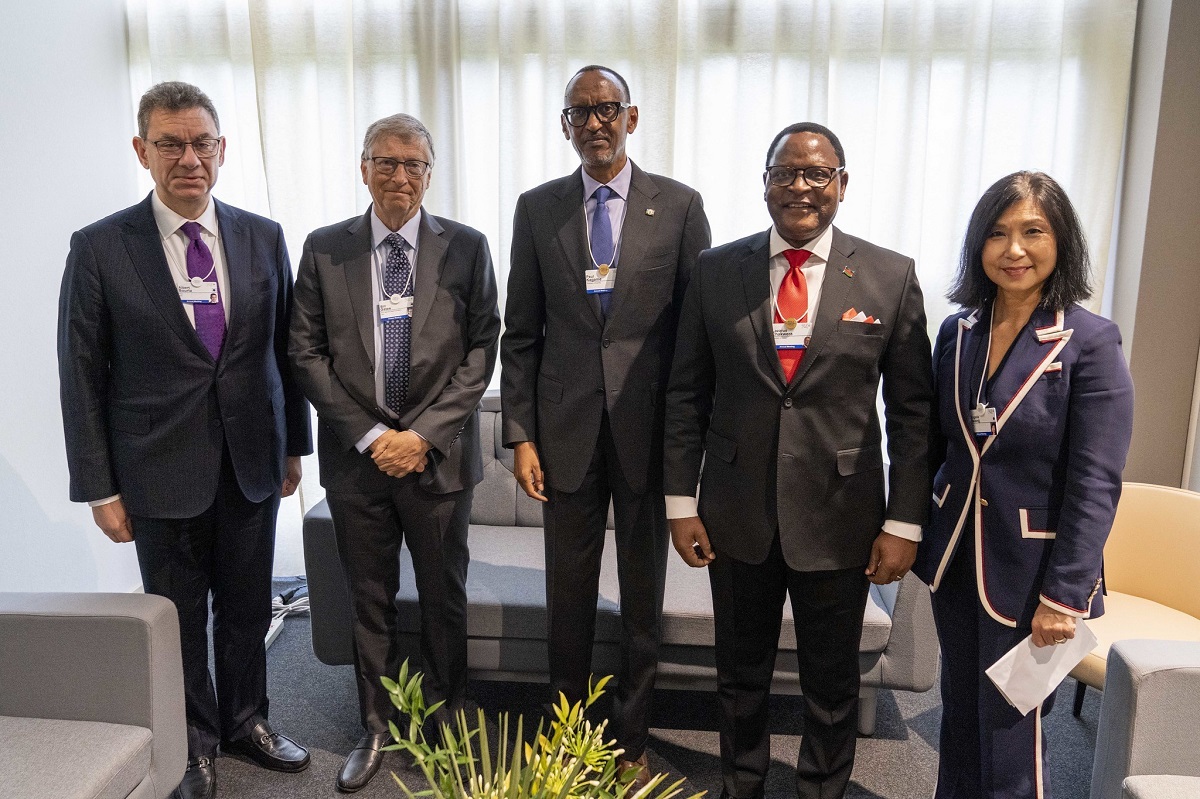
Pfizer will provide all medicines and vaccines available in the US or the European Union on a not-for-profit basis to 1.2 billion people in lower-income countries.
A high-level panel including Paul Kagame and Lazarus Chakwera, presidents of Rwanda and Malawi, and Bill Gates joined Pfizer in call to bridge global health equity gap.
Pfizer commits to providing all its current and future patent-protected medicines on a not-for-profit basis to 45 lower-income countries.
“Rapid and affordable access to advanced medicines and vaccines is the cornerstone of global health equity”, said Paul Kagame, President of Rwanda, during Pfizer’s ambitious new launch at Davos 2022.
Pfizer commits to bridge global health equity gap
Albert Bourla, Chief Executive Officer at Pfizer agreed. “We live at a time where science is increasingly able to take on the world’s most devastating diseases. But a health equity gap exists, a gap which determines who can access these innovations, and those who cannot.”
The Accord aims to bridge this access gap and by so doing greatly reduce the health inequities that exist between many lower-income countries and the rest of the world. To this end, Pfizer will provide all medicines and vaccines available in the US or the European Union on a not-for-profit basis to 1.2 billion people in lower-income countries.
“While we aim to implement the Accord globally," he continued “that is not possible right away. So, we have selected a few countries from which to learn from and improve our processes first.” Rwanda and Malawi will be joined by Uganda, Senegal and Ghana.
Bill Gates, Co-Chair of the Bill & Melinda Gates Foundation, commended this approach. "We think that this is a great model – not only will it get medicines out there - but we can also learn from these pioneering countries and apply lessons learned before expanding the Accord.”
The President of Malawi, one of the pioneering countries, spoke enthusiastically about its potential. “The beauty of this Accord is that it is not a handout, but a real partnership. With the different strengths of its founding members - and our guiding aim of putting health over profit - this Accord means that we have a real shot at improving health globally.
All participants agreed on the importance of a holistic approach to implementing the Accord. The experience of COVID-19 vaccine delivery repeatedly came up. “We have learned that delivery is only the first step towards ensuring that vaccines and other medicines reach people across the world,” said Angela Hwang, Group President of Pfizer.
All panellists agreed that sustained and effective cooperation between key international stakeholders would be vital to the Accord’s success.
“The accord is the embodiment of what the Forum is all about – a strategic synergy between key decision-makers in governments, companies, and civil society - which brings together leading stakeholders to do on a global scale what they cannot do alone,” said Lazarus Chakwera, President of Malawi.
The launch was ended with a call for action by Pfizer, who called upon other global health leaders and organizations to join this groundbreaking new initiative, and bring their expertise and resources to help close the health equity gap and create a healthier world.
Subscribe to view notification of our daily news
RwandaPodium © All Rights Reserved. Powered by thesublime.rw